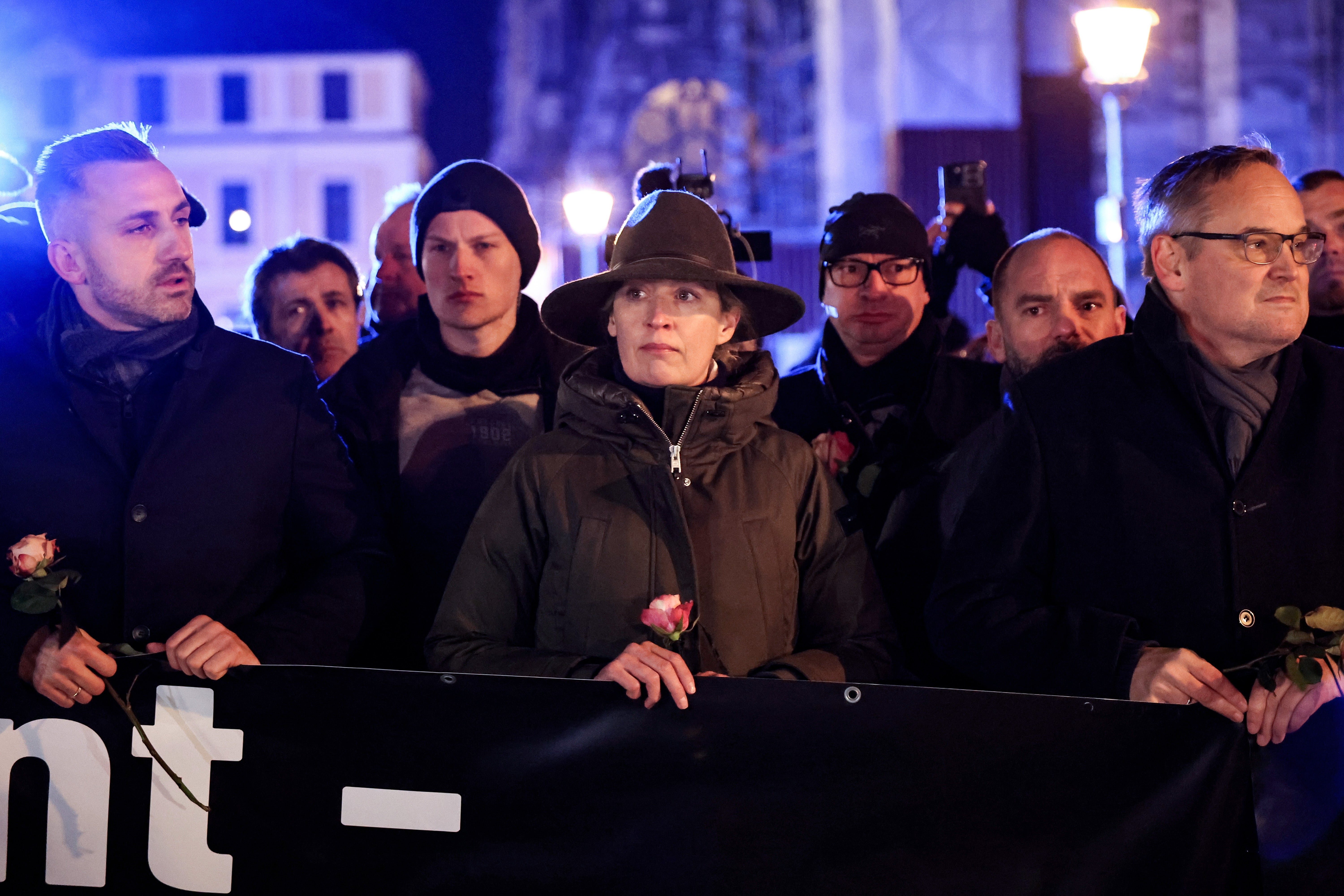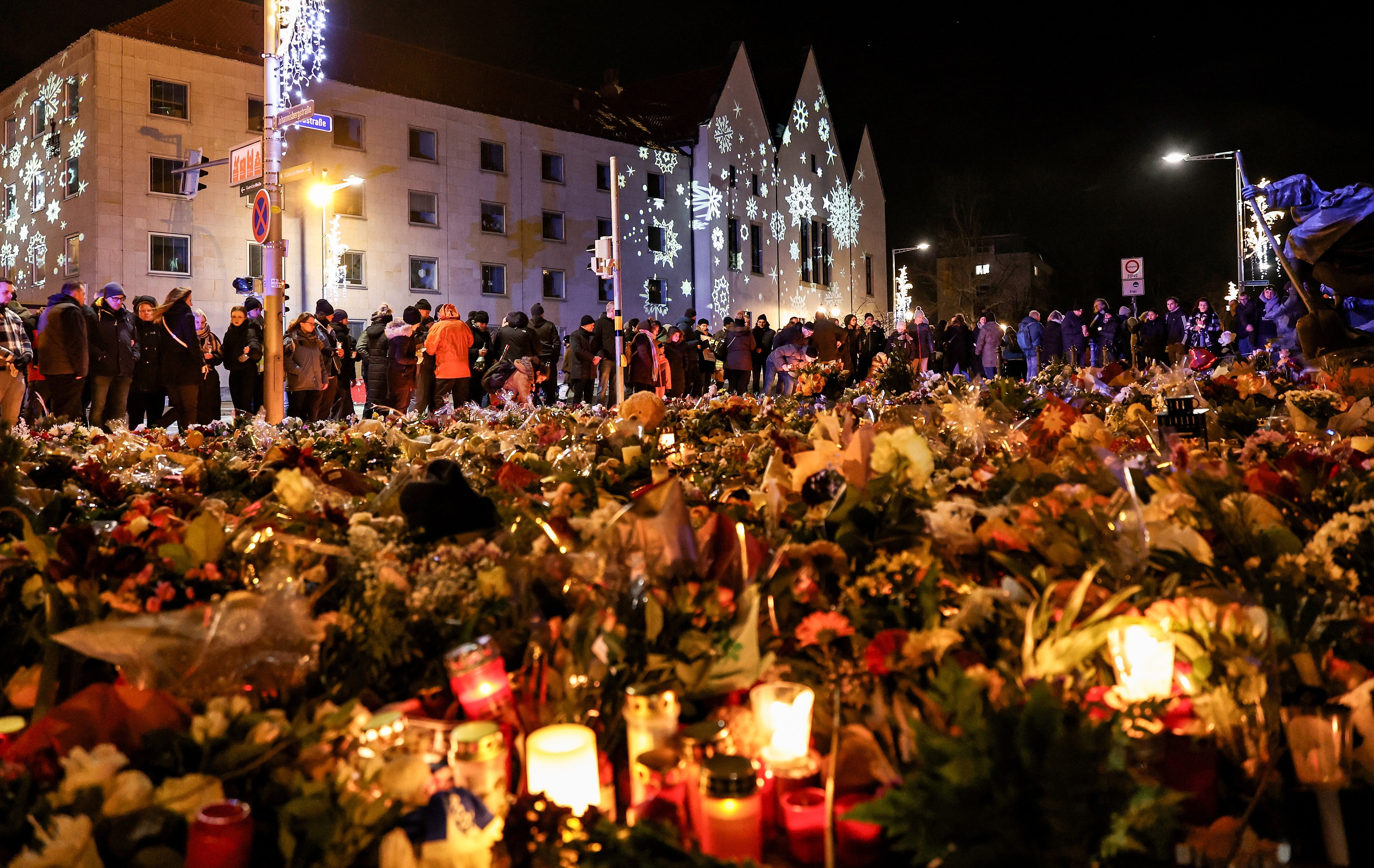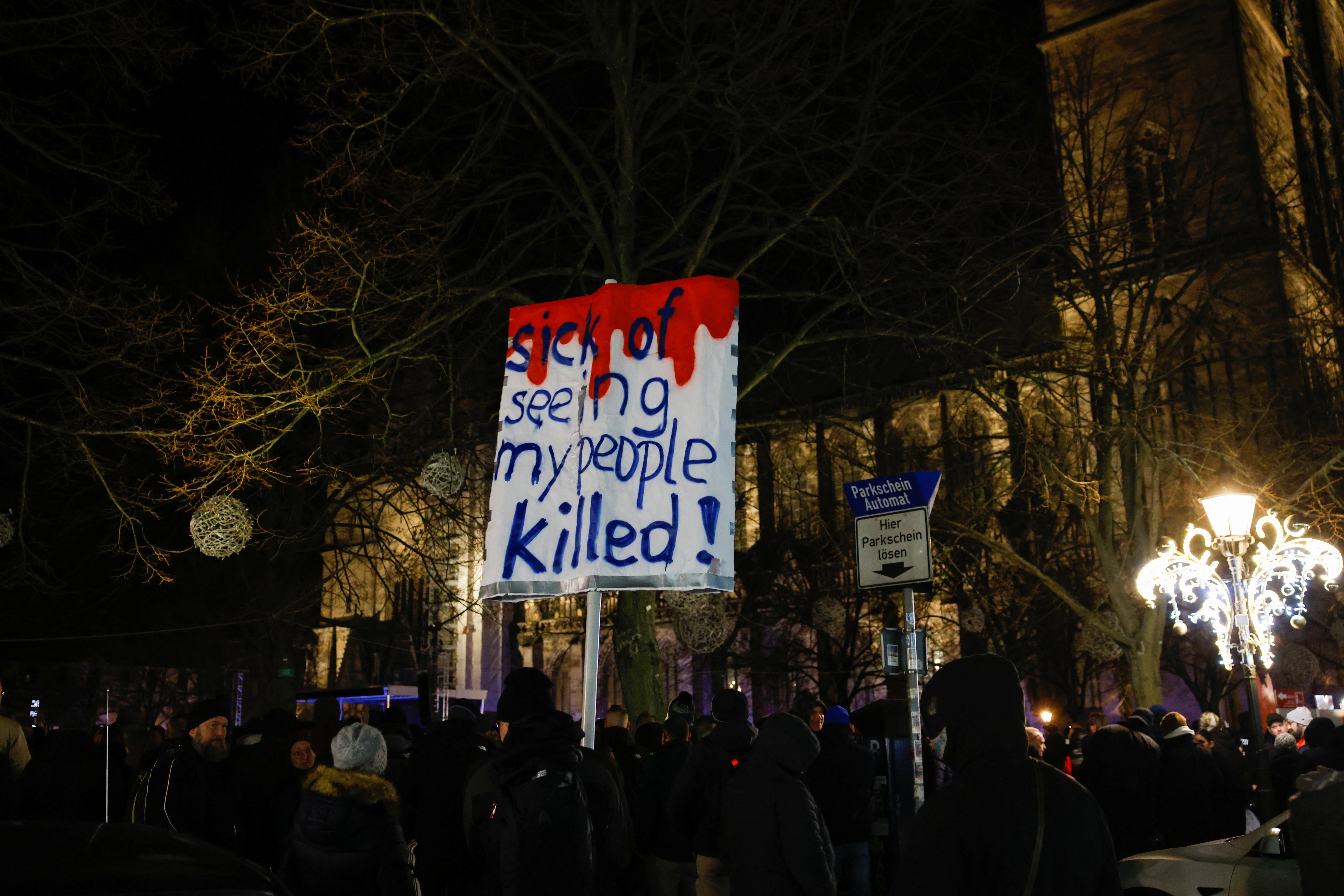Far-right AfD holds rally as Magdeburg mourns Christmas market victims
Far-right co-chair Alice Weidel says attack was ‘an act of an Islamist full of hatred ... for us Germans, for us Christians’

Mourners laid flowers near the scene of the deadly Christmas market attack on Monday, as investigators puzzled over the motive of the suspect and his previous encounters with authorities were scrutinised.
The Johanniskirche, a church a short walk from the scene of the attack, has become a place of mourning since the suspect drove a car into the busy market on Friday evening killing five people. A carpet of flowers now covers the broad pavement in front of the church.
The number of injured has risen to as many as 235.
The suspect, identified as Taleb al-Abdulmohsen by German media, is a 50-year-old psychiatrist from Saudi Arabia. He is said to have a history of anti-Islamic rhetoric and to have sympathy with the far-right Alternative for Germany (AfD) party.
He left video messages on his X (Twitter) account on the day of the attack.
In rambling commentary, he variously blamed Germany’s supposed liberalism for the death of Socrates, an ancient Greek philosopher, and accused police of stealing a USB stick from him and destroying a criminal complaint he had filed.
German newspaper Die Welt said he had undergone psychological treatment.

At a gathering organised by AfD outside Magdeburg’s cathedral on Monday, co-leader of the political party Alice Weidel described the attack as “an act of an Islamist full of hatred for what constitutes human cohesion ... for us Germans, for us Christians”.
AfD is polling in second place nationwide and is particularly strong in eastern Germany, where Magdeburg is located.
Holger Munch, president of the country’s federal criminal police office, told the German broadcaster ZDF that Germany had been warned about the suspect by Saudi Arabia as far back as 2023, and that German authorities had investigated it but found it to be vague.
“The man also published a huge number of posts on the internet. He also had various contacts with the authorities, made insults and even threats. But he was not known for acts of violence,” Mr Munch said.
Federal interior minister Nancy Faeser called for the adoption of tougher internal security laws, including a new act to strengthen police forces, as well as the introduction of biometric surveillance.
“It is clear that we must do everything to protect the people of Germany from such horrific acts of violence. To do this, our security authorities need all the necessary powers and more personnel,” she told news website Der Spiegel.

Vice-chancellor Robert Habeck voiced fears that the attack will fuel online misinformation before a snap national election that is expected to be held in late February. He urged people not to be “infected by hatred”.
“There is still a lot we don’t know, and a lot is unexplained, including the exact motive,” Mr Habeck said. “All the same, I fear that the distrust that was immediately propagated on the net against Muslims, foreigners and people with a history of immigration will entrench itself deeper in society.”
Taha al-Hajji, a Saudi lawyer in exile and the legal director of the Berlin-based European-Saudi Organisation for Human Rights, said that most Saudi opposition activists in Germany did not have a good relationship with the suspect.
“He made problems with everyone always ... He was really isolated,” said Mr al-Hajji.
“He felt that he was the only one right, and people were wrong; he felt he was the centre of everything, he was important. He always had problems with everyone.”
The local prosecutor in Magdeburg, Horst Nopens, said on Sunday that a possible factor in the attack may have been the suspect’s “dissatisfaction with the treatment of Saudi refugees in Germany”, but added that the motive remained unclear.
Reuters and Associated Press contributed to this report
Join our commenting forum
Join thought-provoking conversations, follow other Independent readers and see their replies
Comments
Bookmark popover
Removed from bookmarks